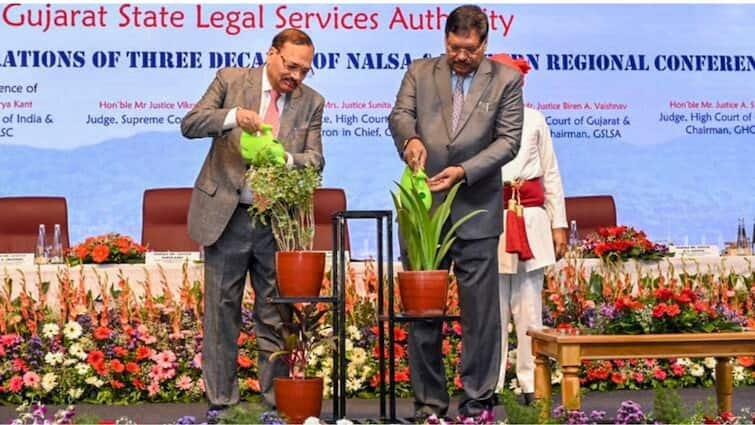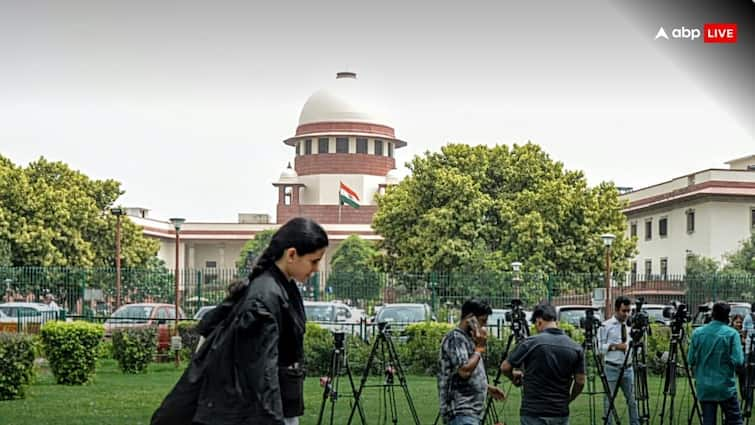Justice Surya Kant, the most senior judge of the Supreme Court, is set to assume charge as the Chief Justice of India (CJI) on November 24, succeeding Justice BR Gavai. He will become the first Haryanvi to hold the nation’s highest judicial post, serving until February 9, 2027.
From Village School to the Supreme Court
Justice Kant’s journey is a remarkable story of perseverance and humility. Born on February 10, 1962, in Petwar, a small village in Haryana’s Hisar district, he grew up far from the privileges often associated with India’s power circles. The son of a schoolteacher, he studied in a village school without benches, often sitting on bare ground.
Until Class 8, he studied in his village and saw a city for the first time when he travelled to Hansi to appear for his Class 10 board exams. He also helped his family with farming chores, sharing the rhythm of rural life.
Recalling his early days during a visit to his alma mater, Maharshi Dayanand University (MDU), Rohtak, Justice Kant fondly remembered studying under dim lamps with friends in a village that rarely had electricity, all driven by the shared dream of securing a government job.
Legal Career and Academic Achievements
After earning his LLB from MDU, Rohtak, in 1984, Justice Kant began practising law at the Hisar district court before shifting to Chandigarh to appear before the Punjab and Haryana High Court. His legal acumen soon earned him recognition, and in 2000, he became the youngest Advocate General of Haryana at 38.
He was elevated as a judge of the Punjab and Haryana High Court in 2004 and continued to pursue academic excellence, securing first-class honours in his master’s degree in law from Kurukshetra University in 2011.
After serving for over 14 years as a High Court judge, he was appointed Chief Justice of the Himachal Pradesh High Court on October 5, 2018, and was subsequently elevated to the Supreme Court on May 24, 2019.
Justice Surya Kant’s Landmark Judgments
Known for his balanced approach and deep sense of justice, Justice Kant has delivered several landmark rulings. As a High Court judge, he upheld jail inmates’ rights to conjugal visits and artificial insemination, exposed politician-builder nexus in land acquisitions, and took a humane approach in cases involving victims’ families, even facilitating education for a convict’s daughters.
He was part of the full bench that ordered the sanitisation of the Sirsa-based Dera Sacha Sauda in 2017 after violence erupted following the Dera chief’s conviction. He also served on the National Legal Services Authority (NALSA) governing body from 2007 to 2011.
During his brief tenure as Chief Justice of Himachal Pradesh High Court, Justice Kant emphasised administrative reforms and judicial efficiency, reinforcing that access to water and electricity forms an integral part of the Fundamental Right to Life under the Constitution.
‘A Jurist of Wisdom and Balance’
Colleagues and legal peers describe him as a jurist of deep learning, humility, and integrity, known for balancing empathy with constitutional rigour. His elevation marks not only a personal milestone but also a symbolic moment for countless aspiring lawyers from small towns and villages across India.



